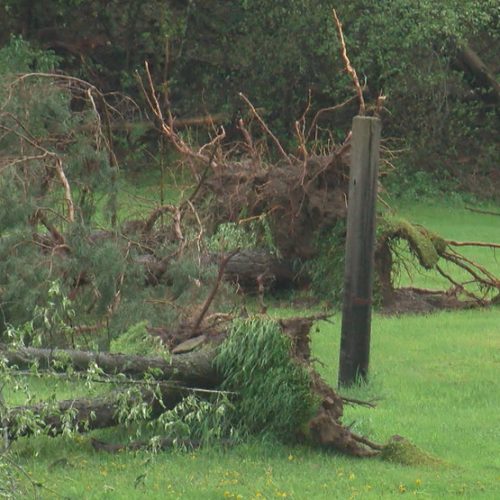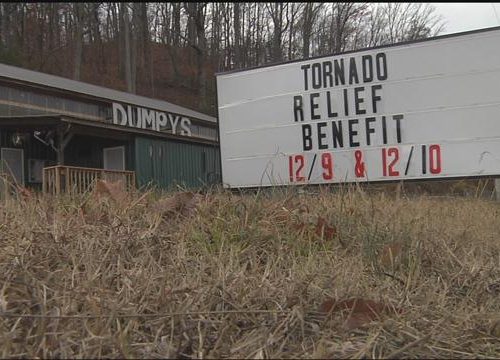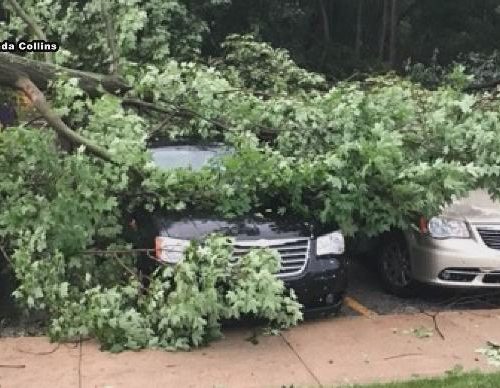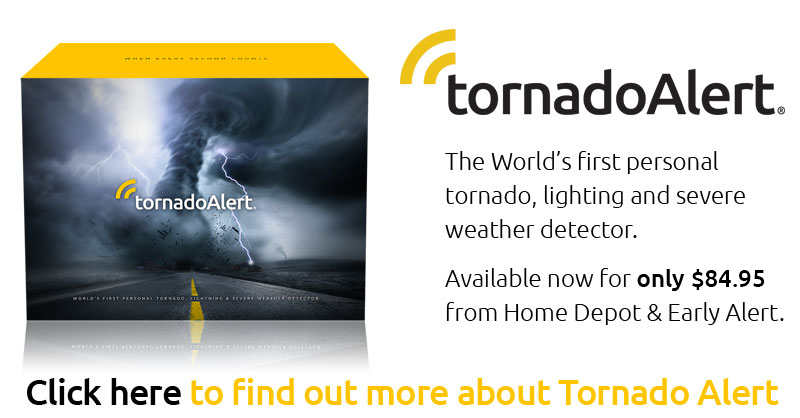Separate EF1 tornadoes touched down in northeast Ohio and northwest Pennsylvania on Tuesday, a rarity for the month of January in both states.
The Ohio tornado was photographed near Bazetta Township, about 50 miles east-southeast of downtown Cleveland on Tuesday morning.
According to a National Weather Service damage survey, the tornado had a 4.5 mile path length from the northeast side of Champion Township to the west side of the city of Cortland in Trumbull County with peak winds estimated from 95 to 100 mph.
An outbuilding at a cemetery was damaged west of Mosquito Lake, and numerous trees and wires were downed in other locations, according to Trumbull County emergency management.
This is only the seventh January tornado in the Buckeye State in records dating to 1950, according to the Tornado History Project. Ohio’s last January tornado was an EF0 near Lewisburg in Preble County on Jan. 29, 2008.
Ohio averages 15 to 16 tornadoes a year based on 1950-2016 data, according to the Tornado History Project. Historically, they’re most likely to occur in June (three to four each year), July or May (two to three each year).
December (five total tornadoes) is the only month with fewer tornadoes than January in Ohio since 1950.
Across the border from the Ohio tornado, another EF1 twister touched down Tuesday near New Lebanon in northwest Pennsylvania. The tornado had maximum wind gusts of 95 mph.
It’s just the sixth tornado to strike Pennsylvania in January dating to 1950, according to the National Weather Service.
The Pennsylvania tornado was spawned by the same thunderstorm that produced the tornado in northeast Ohio.
On average, 39 tornadoes touch down in January in the U.S. Only December (31 tornadoes) averaged fewer in the 20-year period ending in 2016, according to The Weather Channel severe weather expert, Dr. Greg Forbes.
The number of tornadoes in January ranges from a record 212 in 1999, to zero in 2003 and 1986. A single two day outbreak spawned 129 of the January 1999 tornadoes.
Parts of the South are at the most for tornadoes in January. This is due to the region’s close proximity to Gulf of Mexico moisture, which gets squashed southward during the winter. At times, however, that moisture can get pulled northward by weather systems that move across the country in January, resulting in an increased chance of severe weather including possible tornadoes.
Sometimes, the amount of moisture and instability available may be limited, but strong upper-level energy compensates in generating the risk of severe storms with tornadoes, damaging wind gusts and large hail.
Of course, tornadoes can happen outside of locations where they’re most likely to occur.
A 1967 outbreak of 32 tornadoes in parts of northern Illinois, southern Wisconsin, northern Missouri and eastern Iowa included an F4 in St. Louis. A couple of tornadoes touched down as far north as southeastern Wisconsin during a January 2008 outbreak.
by Jonathan Erdman (2019, Jan 8) weather.com




